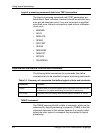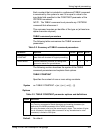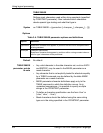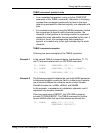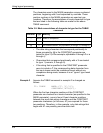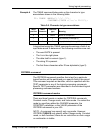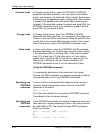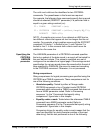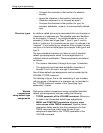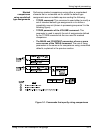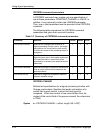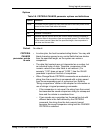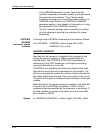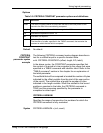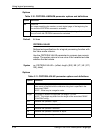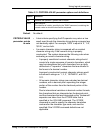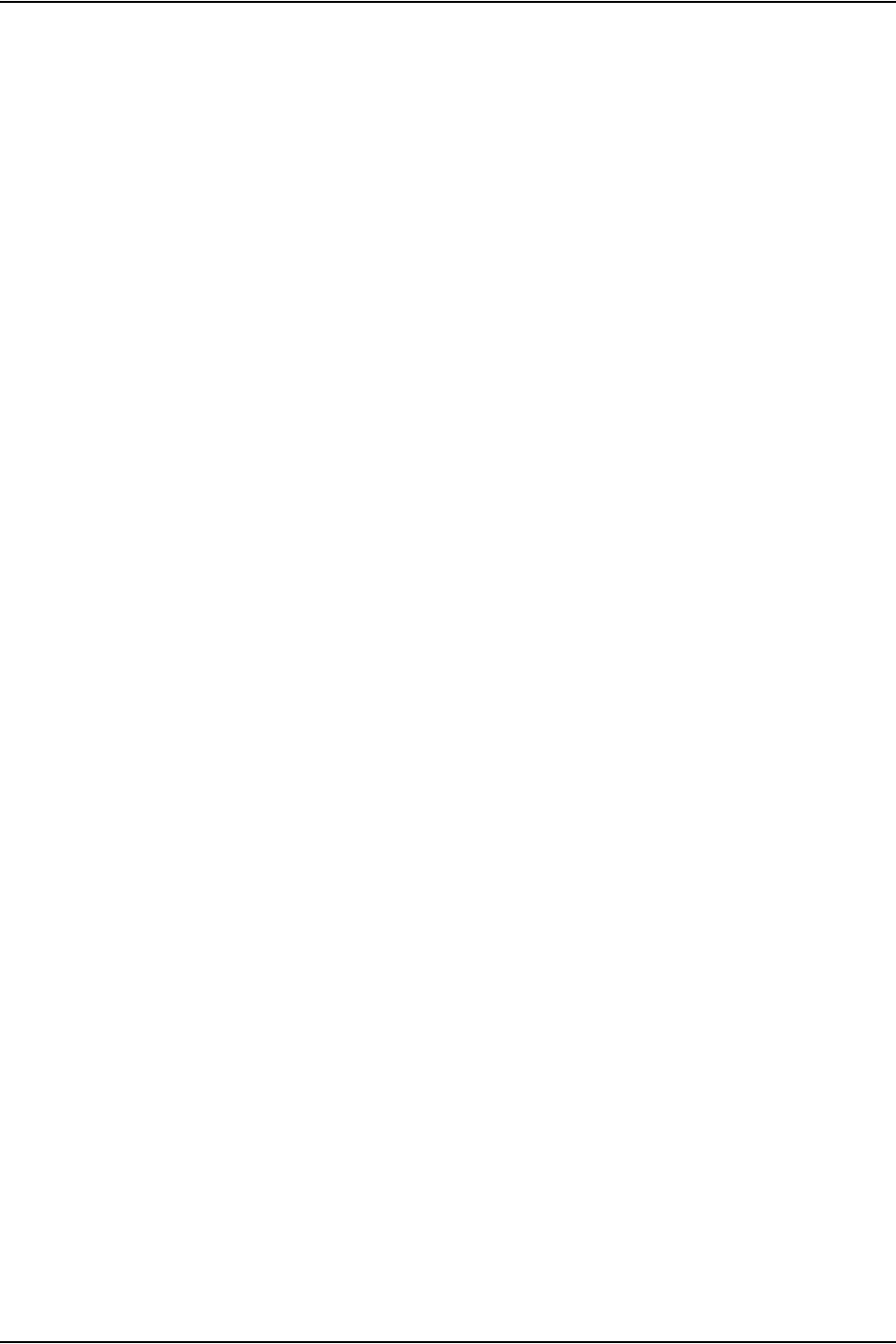
Using logical processing
3-12 Using LCDS Print Description Language
– Compare the character in that position for absolute
equality.
– Ignore the character in that position (consider the
character, whatever it is, to compare as equal).
– Compare the character in that position for type, for
example, alphabetic, numeric, or some specially defined
type.
Character types An attribute called type may be associated with any character or
characters in a character set. The possible types are identified
by the integers 1 through 7. Any single character in a set, for
example (\), either has a type (type 1, type 2, type 3, and so
forth) or it does not. If a character has no type, it is referred to as
“untyped.” It is possible for any character to be untyped, to have
one type, or to have multiple types (for example, to be type 2 and
type 3).
For every standard character set, there is a set of standard
default type assignments which, for most applications, is
sufficient without modification. These assignments are defined
as follows:
• The numeric characters 0 through 9 are type 1 characters
• The uppercase and lowercase alphabetic characters A
through Z and a through z are type 2 characters.
Use of these default type assignments can be invoked by the
VOLUME TCODE command.
The defining of types, that is, the associating of type numbers
with any group of characters in a character set, is described in
the “TCODE command” section of the “Specifying input
parameters” chapter.
Masked
comparisons
using default type
assignments
Performing masked comparisons using unmodified standard
default type assignments requires coding the following:
• TCODE parameter of the VOLUME command: Allows you
to select a set of standard default type assignments.
• MASK and CONSTANT parameters of one or more
occurrences of the TABLE command: Together, these
parameters define exactly how the comparisons for that
TABLE command are made using the set of type
assignments specified by the TCODE parameter of the
VOLUME command.



